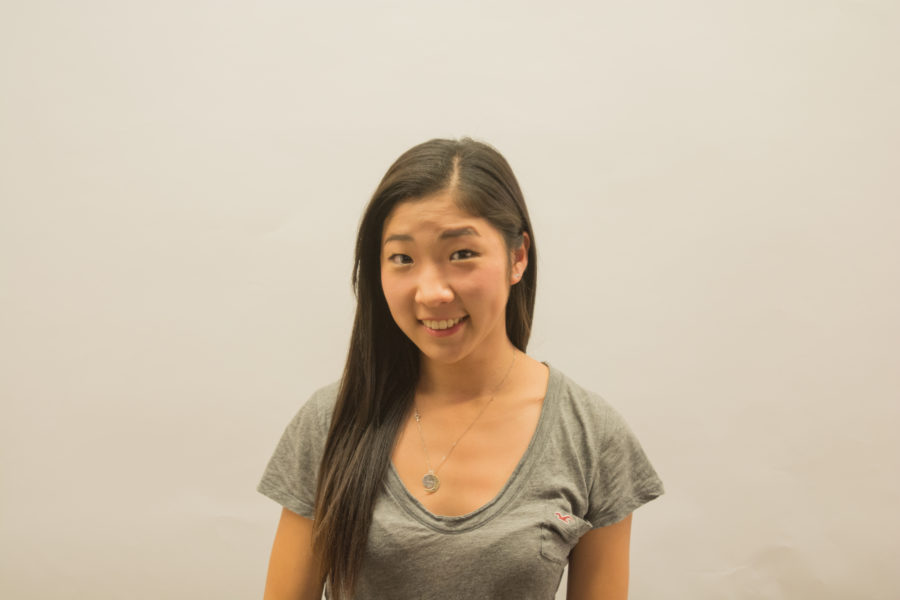Costuming Halloween outfits as empowering
October 26, 2015
It has become a socially accepted norm that Halloween is the one day that women can dress in the most revealing, scantily clad costumes and not be “slut-shamed.”
Many feminists have embraced this idea by interpreting the risqué costuming as a way for women to embrace and demonstrate their sexuality without the weight of social criterion on their shoulders.
However, in almost any Halloween costume aisle you see, the women’s section and men’s section contrast considerably — which in actuality leaves few choices for women’s costumes. Women’s conscientious decisions are taken away and forced into sexualizing themselves, which diminishes the empowerment of women.
According to Gretchen Cawthon of the “Girls Can’t WHAT?” campaign, boys’ costumes consist of fantasy costumes, super heroes and career-based costumes, while girls’ costumes tend to be dominated by princesses, fairies and “sexy” costumes.http://www.girlscantwhat.com/mommy-i-want-to-be-sexy-for-halloween/
Lin Kramer, one of the many concerned mothers that observed this phenomenon, made an official statement to Party City that highlighted how boys had 30 percent of costumes related to professions, while girls had less than seven percent of occupation-based costumes. http://www.womenyoushouldknow.net/the-open-letter-that-got-this-woman-banned-from-the-party-city-facebook-page/
Get The Daily Illini in your inbox!
This discrepancy between a practical, useful man and a less competent woman who is solely defined by her sexual nature is clearly divisive in the costume choices available. Rather than allowing a woman to proudly embrace her sexuality as an important part of her identity, her worth becomes solely based on her attractiveness due to the available costume choices offered.
Halloween isn’t the only time where a woman is objectified based on her physical appearance. We see how Michelle Obama’s social change and influence is reduced to the attractiveness of her arms, and Hillary Clinton’s political campaign is overshadowed by her aging appearance.
In these situations, the media seems to focus more on the aesthetic images of women, rather than their substantial actions and ideas. This is only emphasized by the objectifying culture of Halloween costumes, with women being limited on how they express themselves beyond their sexual nature.
Although some feminists claim that Halloween allows women to break free of the social norms that discourage women from dressing too provocatively, it ultimately only enforces new standards instead.
Women are forced into a lose-lose situation – if we cover up, we’re belittled for being reserved and uninteresting. But, if we give in to the sexy costume culture, we’re objectified for showing off our bodies.
Essentially, the social stigmas are flipped for one day, but the same excluding circumstances are present in either case. Women should be able to wear what they want rather than being forced by societal pressures into dressing a certain way for a holiday.
Encouraging women to flaunt their sexuality for one night unconsciously enforces the idea that it is inappropriate for women to embrace their sexuality on any other day. Rather than spreading the idea of general empowerment with women expressing themselves without restraint, these expectations are only inhibiting empowerment by restricting women’s expressive freedoms to one night.
Instead of advocating for women to dress provocatively in order to empower them, women should be encouraged to dress however they please — whether through flaunting her sexuality and wearing a Playboy bunny costume, or wearing a lumpy Mr. Potato Head costume.
As long as the costumes aren’t offensive through stereotyping or displaying cultural appropriation, it does not matter how much skin a woman is exposing, which should be up to each individual, anyway.
This change from a closed-minded perspective will allow women to gain control of themselves and have freedom in choosing how they identify themselves. Empowerment is having the sovereignty to make independent choices — and a new perspective on Halloween will start the change to let women have more freedom in how they express themselves.
Minju is a freshman in LAS.







